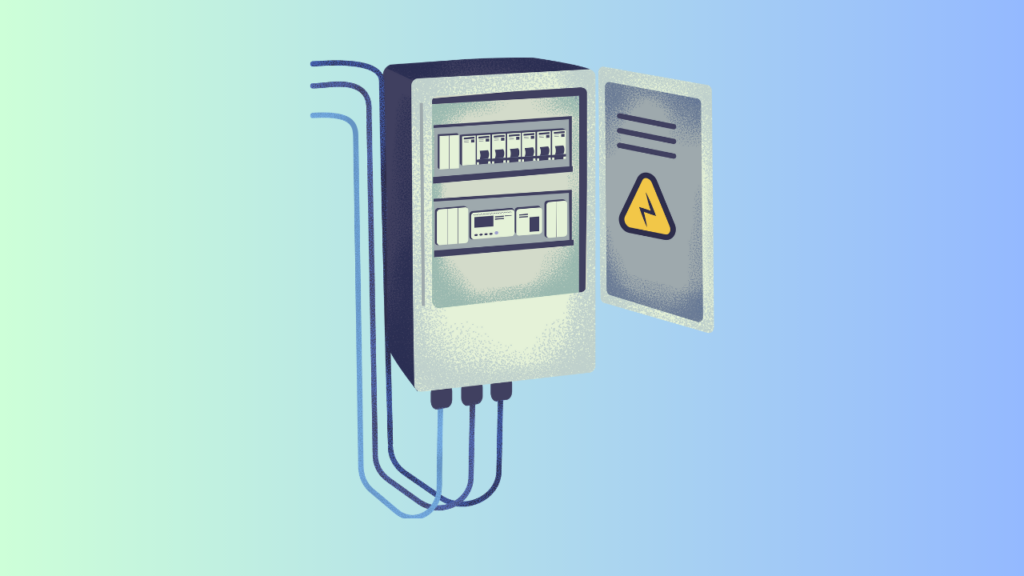If you’re a homeowner or renter, you can choose which electricity provider serves your home. But it’s essential to consider the different factors that influence your decision.
Your energy plan will have an end date within its terms. Be sure to mark it on your calendar and set a reminder alert one or two months before the date.

Reputation of the Provider
It’s essential to choose a reliable provider with good customer service. This can be determined by evaluating online reviews and ratings for providers. Also, check the provider’s website to see how easy it is to contact them and their social media presence.
In a deregulated energy state, you can compare rates from different electricity providers to find the best deal. However, it’s essential to factor in other charges, such as monthly service fees or renewable energy surcharges, when comparing rates. In addition, be sure to consider the length of the contract and any cancellation fees.
Consider using a prepaid plan to avoid paying a deposit or going through a credit check. It’s a great option. In addition, some providers offer discounts on prepaid plans for customers who pay their bills on time or use direct debit. However, these discounts are usually only available for a limited period. It’s also important to read the Electricity Facts Label (EFL) to ensure the provider provides a fair price for your energy.
Fees
Selecting the appropriate provider guarantees a dependable power source and helps you save on electricity costs while earning rewards. It’s essential to remember that you should select a provider with a good reputation and a proven history of delivering excellent customer service.
Another thing to consider is the contract duration. Energy plans have contracts lasting 12, 24, or 36 months, so you should know the contract terms before selecting a plan. Some providers impose early termination fees for customers who terminate their contracts before the term ends.
When determining how to choose an electricity plan, looking at the price per kilowatt-hour and other fees is essential. Some providers make their prices look good at a specific usage kWh level, such as 1000 or 2000 kWh, which can be misleading. Other fees to watch for include bill credits and tiered rate plans.
Energy Consumption
One of the first things to consider is your energy consumption. You can do this by reviewing your monthly bills or checking the meter readings from your utility company. Knowing your energy usage will help you find the right plan for your needs. For example, a time-of-use plan might be a good choice if you use electricity during peak times.
Many Retail Electric Providers (REPs) offer competitive plans that fit different lifestyles. They also provide helpful tools like apps that report your energy usage in close to real-time and guide you on minimizing your appliance running costs.
Review the contract terms and any associated fees before signing up for an electricity supply plan. Most plans have a guaranteed period that allows you to cancel without penalty. Check your energy supplier’s website for this information, or check with your local utility to get the details. You should also be aware of the duration of your contract, as many plans run for a year or longer. This will help you budget your energy cost and avoid unexpected spikes in your bill.
Fixed-Rate Plans
Fixed-rate plans require you to sign a contract that guarantees your energy rate will stay the same for a certain amount of time (ranging from a few months to a few years). These contracts offer stability and predictability. They help customers budget their electricity costs so they don’t get caught off guard by a sudden upswing in prices.
On the other hand, fixed-rate plans can cost you more than a variable-rate plan if market prices fall during your contract period. If you want a long-term plan to save money in the long run, consider running an energy plan comparison to see all your options.
Another option is an indexed plan that links your energy cost to a variable, like the natural gas market price. These plans are ideal for savvy consumers who appreciate monitoring pricing and are ready to jump on the best deal at the right moment. However, if you choose this type of plan, be aware that you will likely have to pay an early termination fee if you change providers before your contract ends.
Variable-Rate Plans
If you’re a market-savvy consumer, a variable-rate plan could fit your energy needs well. This type of plan changes your electricity costs based on market prices, which can change daily. This means your energy bill will fluctuate with energy market conditions, weather patterns, and fuel costs to bring power to your home.
Fixed-rate plans are typically better for customers who want consistency and reliability. You won’t be able to take advantage of declining energy markets if you choose a variable-rate plan. Still, it is easy to budget for your power usage and know exactly what to expect from your monthly energy bill.
Another consideration is the length of your contract term. This can vary between 12 and 36 months, depending on your circumstances. For example, if you’re a pop-up business or renting an apartment short term, a shorter plan might be best for you. Many energy suppliers also offer flexible terms, such as three- or six-month plans.
